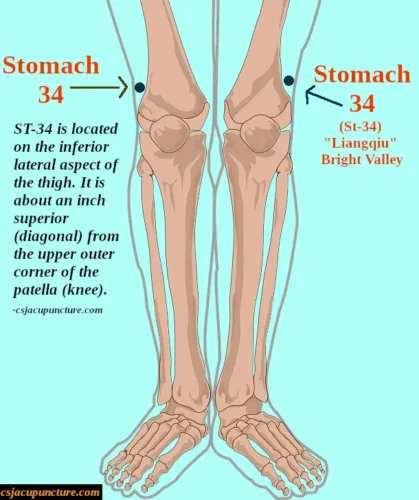This post may contain affiliate links and ads in which we may earn a small percentage of purchases.
I began looking more into this topic because of the fact that it affect more men maybe is suspected. As I myself am focus on trying to feel and become the best inside and out, this is a subject that I believe many men can find some type of understanding.
Also, what is not talked about is the stigma that comes with the problem. However, if men new “it’s not just that one guy”, or that it can be common. The worse thing to do is not seek treatment.
Learning About Erectile Dysfunction and Lifestyle
Lifestyle changes play a pivotal role in managing and potentially reversing erectile dysfunction (ED). Here’s a detailed breakdown of how each lifestyle change impacts ED, supported by scientific evidence:
1. Physical Activity:
A stainless-steel acupuncture pen and gua sha set for massage, reflexology, and tension relief.
 View Product
View Product

- Impact: Regular physical activity improves blood flow, which is crucial for a strong erection. It also boosts testosterone levels, which can improve libido and ED.
- Scientific Evidence: A study titled “Beneficial impact of exercise and obesity interventions on erectile function and its risk factors” found that physical inactivity negatively impacts erectile function. Clinical and experimental exercise interventions have shown to improve sexual responses and overall cardiovascular health.
- Study: “Physical activity and exercise for erectile dysfunction: systematic review and meta-analysis”
- Findings: This systematic review and meta-analysis of 7 studies with 478 participants found that physical activity and exercise interventions, particularly aerobic exercise of moderate-to-vigorous intensity, significantly improved erectile function. The study suggests that physical inactivity negatively impacts erectile function, while clinical and experimental exercise interventions have shown benefits to vascular health and erectile function.
- Study: “Erectile dysfunction, physical activity and physical exercise: Recommendations for clinical practice”
- Findings: This study emphasizes that regular physical exercise, especially aerobic exercise, improves erectile function through various mechanisms, including glucose and lipid metabolism, regulation of arterial pressure, nitric oxide production, and hormonal modulation. The study also highlights the synergistic effect of exercise with drugs commonly used for ED treatment.
2. Healthy Diet:
- Impact: A balanced diet rich in fruits, vegetables, whole grains, and lean proteins can improve blood flow and reduce the risk factors associated with ED.
- Scientific Evidence: The “Dietary factors, Mediterranean diet and erectile dysfunction” study suggests that a Mediterranean diet, which is high in fruits, vegetables, nuts, whole grains, and fish, but low in red and processed meat, is associated with improved erectile function. The study also found that greater adherence to this diet is linked with lower ED prevalence, especially in people with metabolic syndrome.
3. Weight Management:
- Impact: Obesity is a significant risk factor for ED. Weight loss can improve erectile function by enhancing blood flow and reducing inflammation.
- Scientific Evidence: The previously mentioned study on the impact of exercise and obesity interventions on erectile function found that interventions targeting weight loss and exercise provided significant benefits to vascular health and erectile function.
4. Limiting Alcohol and Smoking:
- Impact: Excessive alcohol consumption can lead to ED by affecting the nervous system and reducing blood flow to the penis. Smoking damages blood vessels, which can impede erectile function.
- Scientific Evidence: The “Management of erectile dysfunction” study highlights that sedentary lifestyle, smoking, and excessive alcohol consumption greatly increase the risk of ED.
5. Managing Stress and Mental Health:
- Impact: Psychological factors, including stress, anxiety, and depression, can lead to ED. Managing these factors through counseling or therapy can improve erectile function.
- Scientific Evidence: The same study on the management of ED emphasizes the role of psychological factors in ED and suggests cognitive behavior therapy as a potential treatment.
In conclusion, adopting a healthier lifestyle can significantly improve erectile function. It’s essential to consult with healthcare professionals to tailor a plan that best suits individual needs.
Medical Disclaimer: This article is for informational and educational purposes only and is not a substitute for professional medical advice, diagnosis, or treatment. Always consult a qualified healthcare provider with any questions about a medical condition or treatment.




